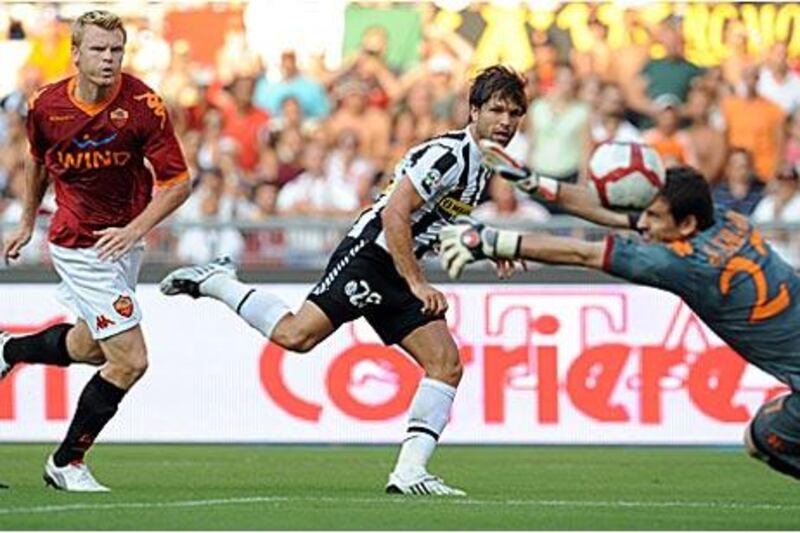When you make your debut for Brazil at the age of 18, when you play for Pele's team and wear his No 10 shirt and when, on top of that, you share a name with the other greatest footballer of all time, expectations are bound to be sky-high. Talent is not just a gift, it is a responsibility and - sometimes - a burden. Especially when others project their own hopes and dreams upon you, going so far as to describe you as "Pele's photo negative".
At 16, Diego made his first team debut for Santos and went from strength to strength in two and half years. He delivered a second championship in his final season, before making the fateful leap to Europe. He made a bold choice - Porto - despite the fact that he had offers from big clubs in Spain and Italy. Why choose the Portuguese champions rather than, say, Barcelona or Inter Milan? Because he was still 19 at the time and did not want to rush things. He felt he needed a smooth transition into the European game and Portugal - with no language barrier, a friendly climate and a brand of football he understood - seemed the logical choice.
Rational, but, with the benefit of hindsight, wrong. He landed at a club where Jose Mourinho's departure had left a massive void and where he was expected to replace the departed Deco, the side's most influential player. When Porto lost the title, frittering away first place in the last two months of the season, the finger of blame turned towards him. Wasn't he supposed to be the wonder boy? Wasn't he the guy who would make the Estadio do Dragao forget all about Deco and Mourinho?
He might have been. But it was too much too soon. And things got worse in his second season, which was halted by injuries in early February. By the time the summer rolled around he was no longer the golden boy. The naysayers called him slow, fat and lazy. Never mind the fact that he had played with painkillers and that, most likely, it was the drugs which ultimately led him to aggravate his injury.
Either way, the very same European powers who were ready to beat down his door a few years earlier were strangely silent. And so he ended up at Werder Bremen, in the Bundesliga in 2006. On the surface it was not the most obvious choice for a man with his skill set. But, in fact, it was a perfect match. Thomas Schaaf, an advocate of attacking football, handed him the keys to the side and gave him full licence to be himself.
With the benefit of genuine wingers either side of him and two top-drawer forwards in front of him, Diego unleashed his talents on the Bundesliga. He notched 13 league goals as Bremen finished third and followed it up with another 13 the following season as they went even better, ending the year as runners-up. Diego was back, big time. And, predictably, his agent's phone started ringing again. He felt he owed Bremen another year, if only because they believed in him when most had written him off. And he made sure it counted. Despite a range of injuries, he enjoyed his best European season yet.
While Bremen endured some turbulent times (Schaaf was let go, they only managed a 10th place finish in the league), he was instrumental in winning the German Cup (setting up the winning goal in the final and leading them to within a whisker of the Uefa Cup (he scored six goals in the group stage of the competition, but was suspended for the final). He had been honest all along, saying this would be his final year and the fans appreciated it. A few days after the end of the season, he signed for Juventus in a deal worth around $32 million (Dh118m).
He was back on the big stage with a new task: helping rebuild the bianconeri after the scandals of 2006. Diego knows that now that he is back in the spotlight, his immense talent will once again be a burden. And, once again, the comparisons with the past will emerge. It is inevitable, he's filling the role that belonged to Michel Platini and Zinedine Zidane. The difference is that he is no longer a teenager. He is a man, with the tools of a man. He can cope, as he showed last week against Roma, notching two goals in Juve's 3-1 away win. Today, another team from the capital beckons: Lazio.
Talent may still be a burden, but it is one he can bear. sports@thenational.ae





